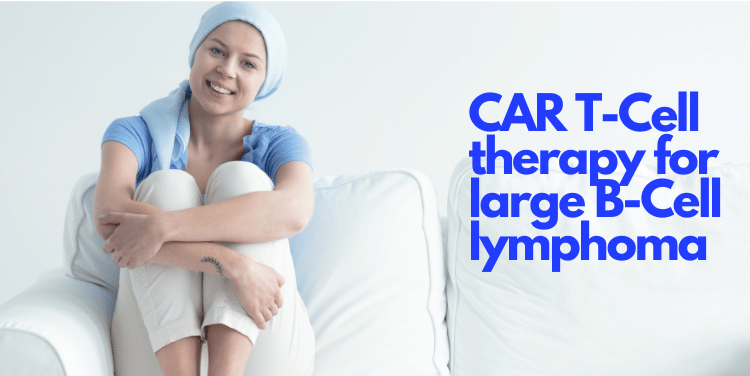Dec 2020: The University of Texas MD Anderson Cancer Center researchers discovered that axi-cel, an autologous anti-CD19 chimeric antigen receptor (CAR) T cell therapy, is a safe and effective first-line therapy for patients with high-risk large B-cell lymphoma (LBCL), a group in desperate need of new and effective treatments.
These findings were presented at the American Society of Hematology’s virtual 2020 Annual Meeting.

Traditionally, around half of patients with high-risk LBCL, a subgroup of the disease in which patients have double- or triple-hit lymphoma or additional clinical risk factors identified by the International Prognostic Index (IPI), have not achieved long-term disease remission with standard treatment approaches such as chemoimmunotherapy.
This trial represents a step toward making CAR T cell therapy a first-line treatment option for patients with aggressive B-cell lymphoma,” said Sattva S. Neelapu, M.D., professor of Lymphoma and Myeloma. At the moment, patients with newly diagnosed aggressive B-cell lymphoma get chemotherapy for about six months. CAR T cell therapy, if successful, may make it a one-time infusion with treatment completed in one month.
Based on the key research ZUMA-1, Axi-cel is presently licenced for the treatment of people with relapsed or refractory LBCL who have already had two or more lines of systemic treatments. The ZUMA-12 trial is a Phase 2 open-label, single-arm, multicenter trial that builds on the findings of the ZUMA-1 trial to assess the use of axi-cel as first-line therapy for patients with high-risk LBCL.
According to the ZUMA-12 interim study, 85 percent of patients treated with axi-cel had an overall response, and 74% had a complete response. After a median follow-up of 9.3 months, 70% of the patients recruited exhibited a continuing response at the data cutoff.
White blood cell count reduction, encephalopathy, anaemia, and cytokine release syndrome were the most common side effects linked with axi-cel treatment. By the time the data was analysed, all adverse events had been resolved.
Furthermore, when compared to when the immunotherapy products were generated from patients who had already received several lines of chemotherapy, the peak level of CAR T cells present in the blood, as well as the median CAR T cell expansion, were higher in this trial of first-line CAR T cell therapy.
“This T cell fitness could be linked to greater therapeutic effectiveness, resulting in better patient outcomes,” Neelapu added.
Following the excellent interim results of ZUMA-12, the researchers plan to continue following up with the patients to ensure that their reactions to the medication are long-lasting.
“A randomised clinical trial would be required to definitely demonstrate that CAR T cell therapy is superior to existing standard of care with chemoimmunotherapy in these high-risk patients if the responses are persistent after prolonged follow-up,” Neelapu said. It also begs the question of whether CAR T cell treatment should be tested in intermediate-risk patients with big B-cell lymphoma.

